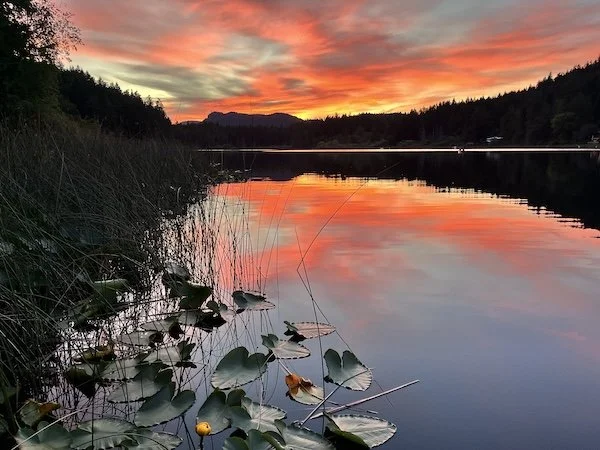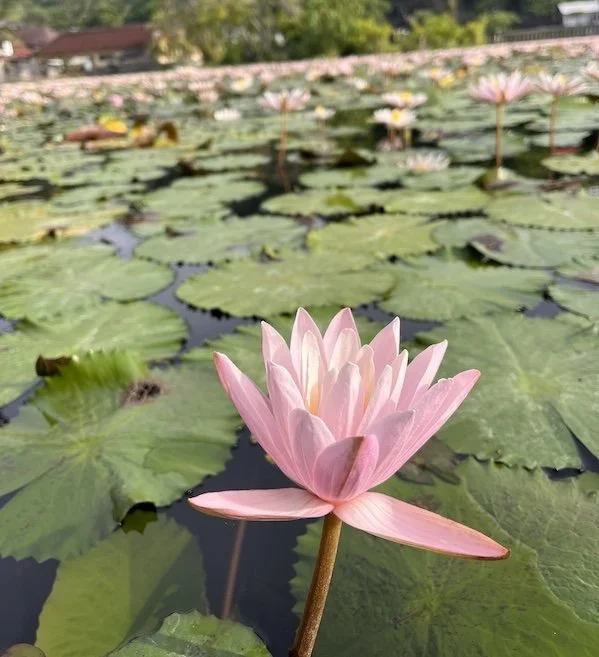Why You Need to (Sometimes) Walk Away
Cusheon Lake, Saltspring Island, BC
I still think about the last meeting. And then the day after.
For over eight years, a local paddling centre was a big part of my life. Until it wasn’t.
I joined as a once-was paddler curious about returning to the sport, started training and competing, joined the Board of Directors, became the President and finally took on leading a campaign to replace our aging facilities.
To say I was involved was an understatement.
I didn’t know how to go half-way and for the last four years I was constantly working on our project, thinking about it, or in meetings trying to wrestle a solution between our committee and our local government. Some weeks I had as many as five meetings plus hours spent in between writing up notes. And it wasn’t just me—board members and other committee members were all investing their time. The project was big, we were under deadlines, and many times it felt desperate.
Until it didn’t.
Walking away
At my final committee meeting, I announced I had reached a headwater moment and felt I was no longer the right person for the role. I had contributed what I could to the project; bringing together investors, lining up financing, and adding partners essential to the end goal and we had a road map for next steps. We were a long way from complete, but I simply wasn’t prepared to continue the fight.
I was stepping down from my role; my commitment was complete.
There is something about committing to others that is different from making a personal commitment. When you commit to others there are consequences—you don’t want to let people down. Especially friends.
The funny part is that often you’re the only one who made that agreement.
When people retire from work, rarely are they called back for a Saturday shift. When someone falls ill or gets injured they are given a pass on whatever their work is. Somehow the wheels keep rolling, life moves on, and it all works out.
In The Untethered Soul, Michael Singer explores how the “commotion the mind” can block us from truly feeling free and happy. “If you want to be happy,” he writes, “you have to let go of the part of you that wants to create melodrama.”
The reality is that if you are willing, you can walk away anytime you want.
And then there is ego.
Ego tugging
Bali, Indonesia
When I dive into a project I take a lot of pride in my work. And I know I am overly sensitive to criticism. I want to be the saviour—the one who single-handedly finds a hold and pulls the team out of the quicksand. While I profess it’s all about team-work and collaboration my ego is always looking for that podium moment.
When a friend would ask what I was “working on” I noticed that this project was near the top of the list—as if I was defining myself by association. My ego was behind the wheel, while all the highly anticipated travels, events with family and fun projects had moved to the back of the bus.
When I walked away, all of my ego-driven needs surfaced: to be right, to be the hero, to succeed. While the new-found sense of freedom was liberating, my ego was tugging me back to the more familiar feelings of the fight.
I’m not saying I was brave, or had discovered some new determination to move on; I think I just wanted to avoid the embarrassment of a double face. So I stepped into a clean break.
Clean break
I remember a retired executive sharing with a podcast host how after he was ousted from his position as Chairman of the company he founded, nobody called. “You would think,” he lamented, “that after 11 years someone would call for advice, or about some contact I had.”
He predicted correctly: no one called me either.
It was like all the stressful meetings, late-night report writing and wringing of hands never happened. Of course, they did (I have a small mountain of files, reports and communication to prove it), but they had no consequences on what I, in my new untethered space, could do.
On one hand (the smaller of the two) I felt a little hurt - after all, I thought my contribution would be missed. On the other, I felt like a small Toyota had been lifted off my shoulders. I was untethered.
The transition was surprisingly quick and clean. The next morning I was no longer responsible. Emails stopped coming, my week - heck, my month - was free of project meetings, and nobody called.
For all of five minutes I wondered if I’d made a mistake. I had closed the door on whatever pride I might have felt if we had been successful in our quest.
And then the inevitable thought . . . what else am I hanging on to?
Move on
We value what we own more than what we don’t. When students are given a coffee mug and then asked to sell it they consistently place a price on the mug far higher than its real value. In a similar example, travellers embarking on a flight are willing to pay very little for extra legroom but wanted three times as much to give up extra space once they had it.
This endowment effect shows up in the closet of past-due-date clothes or bookshelf packed with once-read covers you will never revisit. We apply a higher value to our possessions than their real value. We do the same thing for how we spend our time.
Life hands you a block of time; about 4,000 weeks. You can use it chasing ego-driven needs or kick that shit to the sidewalk, get behind the wheel and find your own road. It can be scary letting go; all the fears of failing show up.
Sometimes walking away is the only way to know what is on the other side. It’s like “…driving at night in the fog.” E.L. Doctorow wrote, “You can only see as far as your headlights, but you can make the whole trip that way.”
Here are three more posts about squeezing the best out of your life:
Am I Too Old to Learn?
Are You Looking Forward?
Are You in the Driver’s Seat?
Small Wins - Why Little Steps are the Path to Big Rewards
Keynotes and workshops by Hugh Culver



